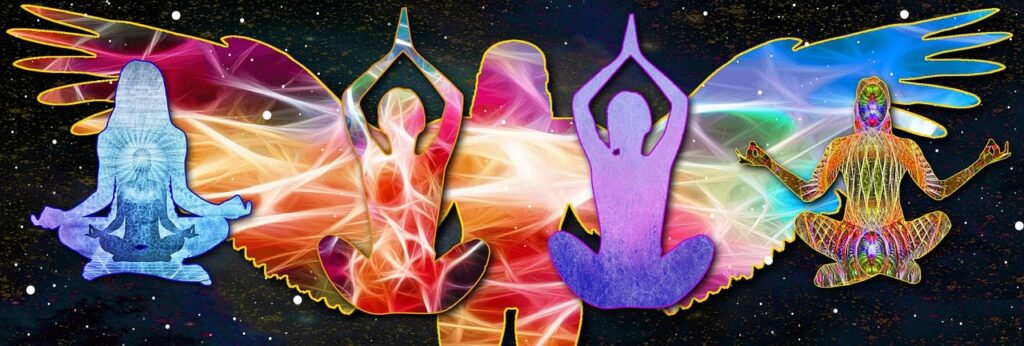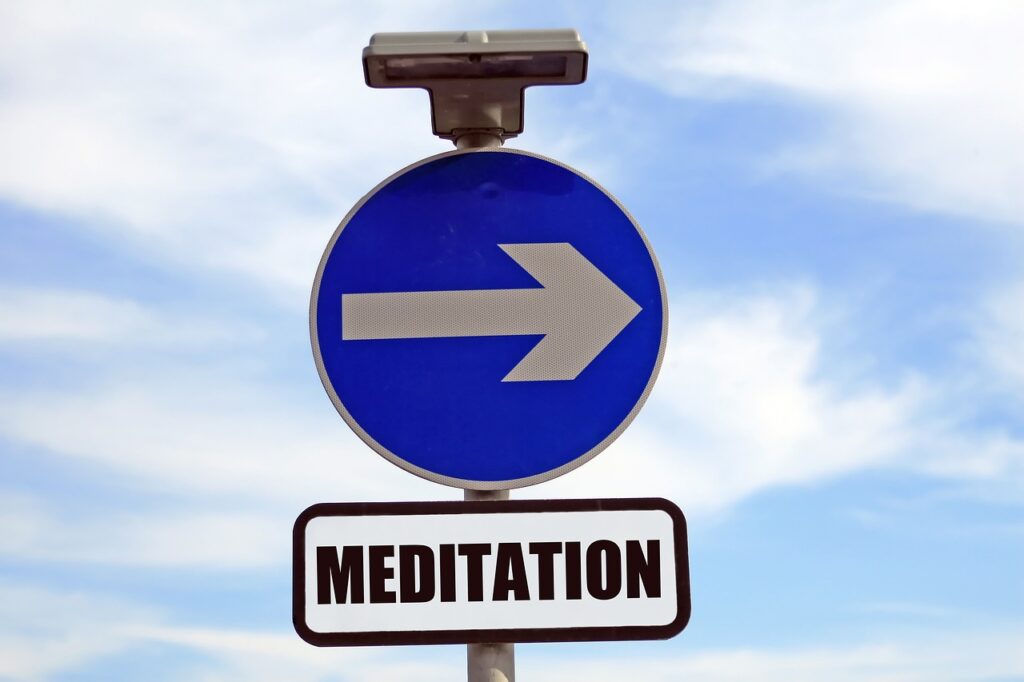In today’s fast-paced world, it’s easy to become overwhelmed by the stresses of daily life. When anger and frustration begin to bubble up, finding a healthy outlet is crucial. This leads us to the question: can guided meditation serve as a valuable tool for managing these intense emotions? In this article, we’ll explore the potential benefits of incorporating guided meditation into your anger and frustration management practices. Join us as we discover the soothing and calming effects that this practice can have on your emotional well-being.
Benefits of Guided Meditation for Managing Anger and Frustration
Reducing Stress Levels
Guided meditation can be a valuable tool for managing anger and frustration by reducing stress levels. When you are angry or frustrated, your body enters a state of heightened arousal, leading to increased stress. Through the practice of guided meditation, you can activate your body’s relaxation response, which helps to lower stress levels. By focusing on your breath and letting go of tension in your body, you can release the built-up stress and restore a sense of calmness.
Enhancing Emotional Regulation
One of the key benefits of guided meditation for managing anger and frustration is enhancing emotional regulation. Anger and frustration often stem from an inability to effectively regulate and control emotions. Guided meditation helps to cultivate emotional regulation by providing a safe space to explore and understand your emotions without judgment. By connecting with your breath and practicing mindfulness, you can gain a greater sense of emotional awareness and learn to respond to anger and frustration in a more balanced and controlled manner.
Increasing Self-awareness and Self-control
Guided meditation also promotes self-awareness and self-control, which are essential for managing anger and frustration. Through the practice of mindfulness, you can develop a deeper understanding of your thoughts, emotions, and behaviors. This increased self-awareness allows you to recognize triggers and patterns that contribute to anger and frustration. With this knowledge, you can cultivate self-control and make conscious choices to respond to challenging situations with patience and composure.
Promoting Mindfulness
Mindfulness is a key component of guided meditation and plays a significant role in managing anger and frustration. By practicing mindfulness, you can bring your attention to the present moment and fully experience your emotions without judgment. This non-judgmental awareness allows you to observe your anger and frustration from a more objective standpoint, leading to greater clarity and perspective. Through regular guided meditation, you can train your mind to become more mindful in everyday life, helping you to respond to anger and frustration with greater intention and awareness.
Improving Communication Skills
Another benefit of guided meditation for managing anger and frustration is the improvement of communication skills. When you are angry or frustrated, it can be challenging to communicate effectively and express your needs and feelings in a constructive manner. Guided meditation helps to develop active listening and empathy, enabling you to communicate more compassionately and understand the perspectives of others. By cultivating these skills, you can create healthier and more harmonious relationships, reducing the likelihood of anger and frustration.
The Science Behind Guided Meditation
Impact on Brain Activity
Research has shown that guided meditation has a significant impact on brain activity, particularly in areas associated with emotions and stress. Studies using neuroimaging techniques, such as functional magnetic resonance imaging (fMRI), have demonstrated that regular meditation practice leads to increased activation in the prefrontal cortex, which is responsible for executive functions like emotion regulation and decision-making. This increased activation in the prefrontal cortex corresponds to a decrease in activity in the amygdala, the brain’s fear center, resulting in reduced feelings of anger and frustration.
Effects on Neurotransmitters
Guided meditation has also been found to influence the release and regulation of neurotransmitters in the brain. Neurotransmitters, such as serotonin and dopamine, play a vital role in regulating mood and emotions. Regular meditation practice has been shown to increase the production of these neurotransmitters, leading to improved mood and emotional well-being. By balancing neurotransmitter levels, guided meditation can help manage anger and frustration by promoting feelings of calmness and contentment.
Improving Neural Connections
The practice of guided meditation has been linked to the improvement of neural connections in the brain. Through focused attention and mindfulness, meditation strengthens the neural pathways associated with self-regulation and emotional control. These enhanced neural connections enable individuals to regulate their emotional responses more effectively, reducing the intensity and duration of anger and frustration.
Reducing Activation of the Amygdala
One of the key mechanisms through which guided meditation helps in anger and frustration management is by reducing the activation of the amygdala. The amygdala is responsible for processing and responding to emotional stimuli, including anger and frustration. Through regular meditation practice, individuals can decrease the reactivity of the amygdala, allowing for a more adaptive and controlled response to anger and frustration triggers.

This image is property of pixabay.com.
How Guided Meditation Helps in Anger and Frustration Management
Recognizing Triggers and Reactions
Guided meditation helps in anger and frustration management by facilitating the recognition of triggers and reactions. Through the practice of mindfulness, you can develop a heightened awareness of the thoughts, emotions, and physical sensations that arise in response to anger and frustration. By recognizing your triggers and reactions, you can proactively address them and prevent them from escalating into intense and harmful emotions.
Creating a Sense of Calmness
One of the immediate benefits of guided meditation in anger and frustration management is the creation of a sense of calmness. When you are overwhelmed by anger or frustration, your body enters a state of physiological arousal. Guided meditation can help to counteract this arousal by activating the relaxation response. By focusing on your breath and directing your attention inward, you can induce a state of calmness that can help alleviate the intensity of anger and frustration.
Developing Empathy and Compassion
Guided meditation fosters the development of empathy and compassion, which are essential qualities for managing anger and frustration. Through regular practice, you can cultivate a greater sense of connectedness and understanding towards others. This increased empathy allows you to view situations from different perspectives, reducing the likelihood of anger and frustration arising from misunderstandings or miscommunications. Furthermore, it enables you to respond to challenging situations with compassion and kindness, promoting healthier and more constructive interactions.
Gaining Perspective and Clarity
Anger and frustration often cloud judgment and prevent individuals from seeing the bigger picture. Guided meditation provides a space for gaining perspective and clarity. By practicing mindfulness, you can detach yourself from the immediate emotional response and observe the situation from a more objective standpoint. This shift in perspective allows you to identify the root causes of anger and frustration and find more effective solutions. With clarity and a broader understanding of the situation, you can respond to challenges in a more balanced and rational manner.
Cultivating Patience and Tolerance
Guided meditation helps in anger and frustration management by cultivating patience and tolerance. Anger and frustration often arise from a mismatch between expectations and reality. Through the practice of meditation, you can develop a greater acceptance of what is and cultivate patience for the things that are beyond your control. By letting go of the need for immediate gratification and embracing uncertainty, you can reduce the likelihood of anger and frustration arising in response to unforeseen circumstances.
Choosing the Right Guided Meditation Techniques
Breathing Exercises
Breathing exercises are a fundamental aspect of guided meditation for anger and frustration management. By directing your attention to your breath, you can create a sense of grounding and centering. Deep, slow breaths activate the body’s relaxation response, reducing stress levels and promoting a state of calmness. Breathing exercises can be practiced anywhere and at any time, making them a convenient tool for managing anger and frustration during everyday life.
Body Scan Meditation
Body scan meditation involves systematically directing your attention to different parts of your body, focusing on physical sensations and releasing tension. This technique is particularly useful for managing anger and frustration, as it promotes body awareness and encourages the release of physical tension that often accompanies intense emotions. Body scan meditation can be especially helpful in grounding yourself during moments of anger and frustration, allowing you to regain control and composure.
Loving-Kindness Meditation
Loving-kindness meditation involves cultivating feelings of love, compassion, and kindness towards oneself and others. This practice can be beneficial in anger and frustration management, as it helps to counteract negative emotions with positive ones. By directing loving-kindness towards yourself and those who may have caused anger or frustration, you can shift your focus from resentment to empathy, fostering a sense of connection and understanding.
Visualization and Imagery
Visualization and imagery techniques involve creating vivid mental images to evoke positive emotions and create a sense of calmness. In anger and frustration management, visualization can be used to imagine peaceful and serene environments or visualize positive outcomes of challenging situations. By immersing yourself in these visualizations, you can shift your emotional state and reduce the intensity of anger and frustration.
Mantra and Affirmation Meditation
Mantra and affirmation meditation involve repeating a word, phrase, or affirmation to focus and calm the mind. These techniques are particularly useful for managing anger and frustration by redirecting negative thoughts and promoting positive self-talk. By choosing a mantra or affirmation that resonates with you, you can replace anger and frustration with more constructive and empowering beliefs.

This image is property of pixabay.com.
Incorporating Guided Meditation into Daily Routine
Setting Aside Time for Meditation
To incorporate guided meditation into your daily routine, it is essential to set aside dedicated time for practice. Start by identifying a specific time during the day when you can commit to meditation without distractions. This could be in the morning, during a lunch break, or before bed. Consistency is key, so aim to meditate for a few minutes each day and gradually increase the duration as you become more comfortable with the practice.
Creating a Comfortable Environment
Creating a comfortable environment is crucial for effective guided meditation. Find a quiet and peaceful space where you can meditate without interruption. It can be helpful to dim the lights, play calming music, or use essential oils or incense to enhance the sensory experience. Make sure you are physically comfortable by sitting or lying in a position that allows for relaxation and support.
Using Guided Meditation Apps or Resources
Guided meditation apps and resources can be valuable tools for incorporating meditation into your daily routine. These apps provide a wide range of guided meditations with varying lengths and themes, making it easy to find practices that resonate with your needs. Many apps also offer reminders and progress tracking features to help you stay consistent and motivated on your journey.
Finding a Qualified Meditation Guide
If you are new to guided meditation or prefer personalized guidance, finding a qualified meditation guide can be beneficial. A meditation guide can provide instruction, support, and accountability as you navigate your anger and frustration management journey. Look for certified meditation teachers or seek recommendations from trusted sources to ensure you are receiving expert guidance.
Evaluating Progress and Making Adjustments
As you incorporate guided meditation into your daily routine, it is essential to periodically evaluate your progress and make adjustments as needed. Take note of any changes in your ability to manage anger and frustration, as well as any challenges or areas for improvement. Adapt your meditation practice accordingly, whether by exploring different techniques, increasing the frequency or duration of practice, or seeking additional support or resources.
Case Studies on Anger and Frustration Management with Guided Meditation
Personal Testimonials
Many individuals have shared their personal testimonials regarding the positive impact of guided meditation on anger and frustration management. These testimonials reflect the transformative power of meditation in bringing about profound changes in emotional well-being, stress reduction, and overall quality of life. Reading or listening to personal stories can inspire and motivate those who are considering incorporating guided meditation into their anger and frustration management practices.
Research Studies
Research studies have also shed light on the effectiveness of guided meditation in managing anger and frustration. These studies often employ rigorous methodologies and objective measurements to evaluate the impact of meditation on emotional regulation, stress reduction, and related outcomes. The findings consistently suggest that guided meditation can be a valuable tool for managing anger and frustration, providing scientific evidence to support its use.
Professional Experiences
Professionals in the fields of psychology, counseling, and anger management have also reported positive experiences with incorporating guided meditation into their practice. These professionals often combine guided meditation with other therapeutic techniques to provide comprehensive support for individuals struggling with anger and frustration. Their firsthand experiences highlight the effectiveness of guided meditation as an adjunctive tool in anger management programs.

This image is property of pixabay.com.
Combining Guided Meditation with Other Anger Management Techniques
Cognitive Behavioral Therapy (CBT)
Combining guided meditation with cognitive-behavioral therapy (CBT) can be a powerful approach to anger and frustration management. CBT focuses on identifying and changing negative thought patterns and behaviors associated with anger and frustration. Guided meditation complements CBT by providing tools for emotional regulation and mindfulness, enhancing the effectiveness of CBT techniques in managing anger and frustration.
Anger Journaling
Anger journaling involves writing down thoughts, feelings, and triggers associated with anger and frustration. By combining guided meditation with anger journaling, individuals can gain deeper insight into their emotions and thought processes. Guided meditation can help create a calm and focused state of mind for journaling, enabling individuals to explore and process their feelings in a more introspective and constructive manner.
Physical Exercise and Movement
Physical exercise and movement have been shown to be effective in reducing anger and frustration. When combined with guided meditation, physical exercise can provide a holistic approach to anger management. Engaging in mindful movement, such as yoga or tai chi, while incorporating guided meditation techniques, promotes body awareness, relaxation, and emotional regulation.
Expressive Arts Therapy
Expressive arts therapy combines various art forms, such as painting, music, and dance, as a means of self-expression and emotional exploration. When combined with guided meditation, expressive arts therapy can facilitate the release and transformation of anger and frustration. The meditative state induced by guided meditation creates a conducive environment for creative expression and healing, allowing individuals to explore and process their emotions in a non-verbal and unique way.
Seeking Professional Help
While guided meditation can be a valuable tool for managing anger and frustration, it is important to acknowledge when professional help may be necessary. For individuals experiencing severe or persistent anger issues, seeking help from a mental health professional is advised. They can provide personalized guidance, counseling, and therapy to address underlying causes and develop a tailored treatment plan.
Overcoming Common Challenges in Guided Meditation
Restlessness and Inability to Focus
Restlessness and an inability to focus are common challenges in guided meditation, especially when starting. It is essential to remember that meditation is a practice, and like any skill, it requires patience and consistency. Start with short meditation sessions and gradually increase the duration as your focus improves. Guided meditation techniques, such as focusing on the breath or repeating a mantra, can help anchor your attention and reduce restlessness.
Negative Self-judgment and Frustration
Negative self-judgment and frustration may arise during guided meditation when you become aware of wandering thoughts or difficulty maintaining focus. It is important to approach these experiences with compassion and without judgment. Recognize that thoughts and distractions are a natural part of the meditation process and gently guide your attention back to the present moment. Embrace a non-judgmental attitude towards yourself and your meditation practice, allowing for growth and learning.
Resistance to Change and Mindfulness
Resistance to change and mindfulness can be a barrier to fully embracing guided meditation for anger and frustration management. It is common for individuals to resist slowing down, being present, and confronting their emotions. Recognize that change takes time and effort, and be patient with yourself throughout the process. Remain open-minded and curious about the potential benefits of mindfulness, even if it feels unfamiliar or challenging at first.
Finding Consistency and Motivation
Consistency and motivation are crucial for reaping the benefits of guided meditation. It can be challenging to establish a regular meditation practice amidst the demands of daily life. Set realistic goals and commit to a schedule that works for you. Remind yourself of the positive impact meditation has on your well-being and the progress you have made. Enlist the support of friends, family, or meditation groups to stay motivated and accountable.
Dealing with Relapses
Relapses are a normal part of the journey towards anger and frustration management. It is important to approach relapses with self-compassion and without judgment. Acknowledge that setbacks are opportunities for growth and learning. Reflect on the triggers and circumstances that led to the relapse and make adjustments to your meditation practice or seek additional support if needed. Remember that progress is not linear, and each setback brings you closer to long-term transformation.
Precautions and Limitations of Guided Meditation for Anger Management
Not a Quick Fix Solution
It is important to recognize that guided meditation is not a quick fix solution for anger management. It requires consistent practice and commitment to experience lasting changes. While guided meditation can be a powerful tool, it should be understood as part of a holistic approach to anger management that includes self-reflection, therapy, and other complementary techniques.
Individual Variations and Effectiveness
The effectiveness of guided meditation for anger management may vary from person to person. Some individuals may experience immediate benefits, while others may require more time to see significant changes. It is essential to remain patient and open-minded, allowing for individual variations and adapting your practice to suit your unique needs and preferences.
Seeking Professional Guidance
While guided meditation can be beneficial for managing anger and frustration, it is important to seek professional guidance, especially for individuals with severe or chronic anger issues. A mental health professional can assess your situation, provide personalized strategies, and address any underlying causes or co-existing conditions that may contribute to anger and frustration.
Addressing Underlying Causes
Guided meditation alone may not be sufficient to address underlying causes of anger and frustration, such as trauma, unresolved conflicts, or mental health conditions. It is crucial to be aware of these underlying factors and seek appropriate professional help to address them. Guided meditation can complement therapy and other interventions, but a comprehensive approach is often necessary for long-term anger management.
Acknowledging Limitations
Guided meditation has its limitations in managing anger and frustration. While it can help cultivate emotional regulation, it may not eliminate anger and frustration altogether. It is important to acknowledge that anger is a natural human emotion and that frustration is a part of life. Guided meditation can provide tools and techniques for healthy expression and management, but it cannot erase these emotions entirely. Acceptance and self-compassion are key to navigating anger and frustration in a balanced and constructive manner.
Conclusion
Guided meditation can be a powerful tool for managing anger and frustration, offering a range of benefits from reducing stress levels to improving communication skills. The science behind guided meditation highlights its impact on brain activity and neurotransmitters, providing a scientific foundation for its efficacy. By recognizing triggers and reactions, creating a sense of calmness, developing empathy and compassion, gaining perspective and clarity, and cultivating patience and tolerance, guided meditation equips individuals with valuable skills for anger and frustration management.
Choosing the right guided meditation techniques, incorporating meditation into daily routines, and leveraging case studies can enhance the effectiveness of guided meditation. Combining guided meditation with other anger management techniques, overcoming common challenges, and acknowledging precautions and limitations are key considerations to maximize the benefits of this practice.
By harnessing the power of guided meditation, practicing consistently, and embracing anger as a teacher, individuals can experience improved well-being and relationships. It is also important to share the benefits of guided meditation with others, as fostering a supportive and compassionate community can create a ripple effect of positive change. With continual practice and growth, guided meditation can truly transform the way individuals approach and manage anger and frustration in their lives.
Hi, I’m the Editor of Daily Guided Meditation. Meditation is not just a practice for me, but a way of life. I believe in the power of mindfulness to bring peace and balance into our busy lives. That’s why I created this website, where you can find daily guided meditations to help you on your journey of self-discovery and inner peace. Join our community and experience the transformative benefits of mindfulness through soothing meditations, relaxation techniques, and valuable resources. Prioritize self-care and start your day with intention by exploring our website today. Together, let’s find serenity amidst the chaos.


